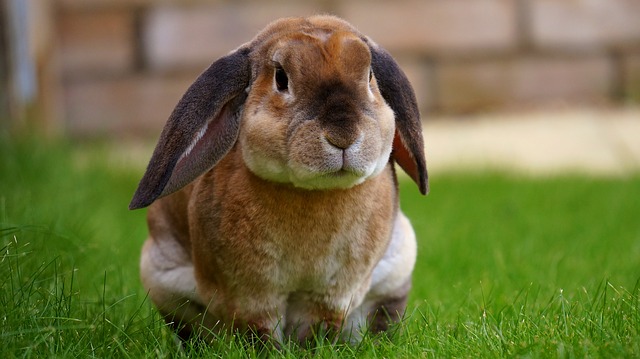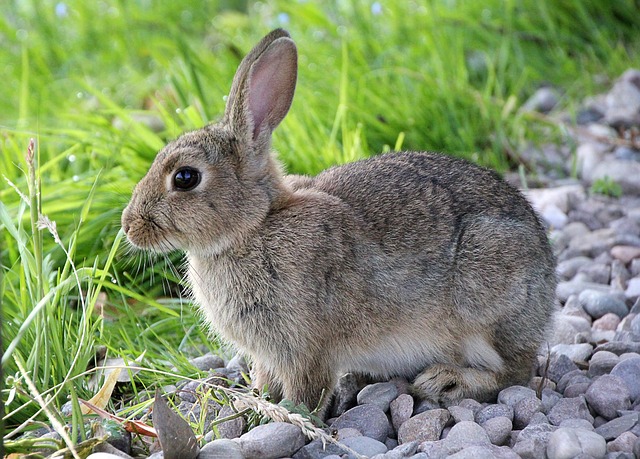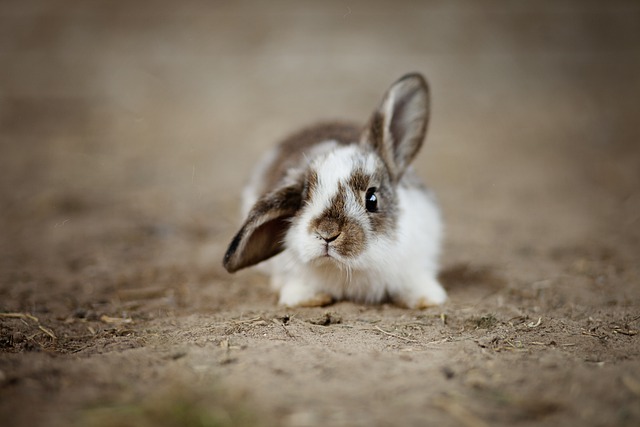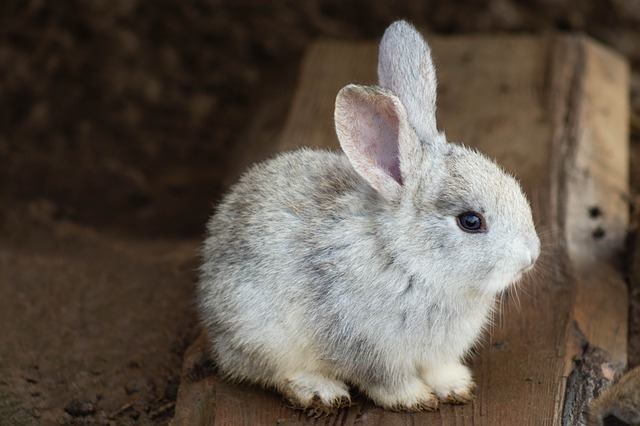
Contents
There is much to be said about spaying or neutering our fur babies. Obviously, there will be conflict on both sides of the argument. However, simply stated, unless you plan on breeding your rabbit, there is no reason to not have them spayed or neutered. It is likely that many figure it is okay to leave well enough alone and not worry about making such a drastic step towards our floppy eared friends. Again, two sides to every argument.
The first question to ask is do you plan to allow your rabbit to breed? Once you determine that answer, the rest comes easy. What if you are not sure? Read on and we will see if we can answer that also. Nature is pretty handy at running its own course of action. And that works well, for animals in the wild.
Your situation is different, you do not have a wild rabbit. Your floppy eared friend is domesticated. You likely have a rabbit as a show animal, maybe just as a pet. If the rabbit is a show animal, you probably do not want to have an unexpected pregnancy happen.
If he or she is just a pet, and you only intend to have one, then consideration must be given to the aggression that some male rabbits experience when hormones rage inside of them.
Why Your Rabbit Should Be Spayed or Neutered

It has been shown that rabbits are better companions when they have been spayed or neutered. Once the urge to mate has been taken away, the rabbit will become calmer and more dependable, as well as more loving. The urge for destructive behavior is eliminated for the most part. They are less prone to be aggressive, circling, growling or the appearance of wanting to bite.
It is far easier to train your rabbit to use the litter box, both male and female. Also, unneutered males tend to spray in different areas. Spraying is the depositing of urine to ‘mark’ the territory. Once the surgery is completed, there would be no spraying.
It can be almost impossible for your rabbit to have a friend. It does not matter if the other rabbit is male or female. If your rabbit is not fixed, by being spayed or neutered, there will inevitably be sexual aggression due to the hormones. Rabbits are the type of creature that is very social. They love to socialize and be around others.
Having your rabbit spayed or neutered can increase their life span by years. The surgery will also prevent cancers and other diseases of certain reproductive organs. Based on studies and research, a female rabbit is 65% more likely to have medical issues concerning reproductive organs by the time she turns 4 years old.
Is Surgery Safe For Rabbits?
The surgery that is done to spay or neuter your rabbit, is just as safe for him or her, as it is for any other animal. There is always a risk of complications during surgery, including with the anesthetics.
At What Age Can Surgery Be Performed?

Once the female rabbit has sexually matured, it is safe to perform the surgery. Sexual maturity happens when they are approximately 4 months old. Most highly trained vets do prefer to wait until the female is 6 months old.
Males can have surgery performed when they turn 8 to 12 weeks old.
A rabbit can be too old to have the surgery done, although each vet will have his or her own opinion in regards to age and surgery, when a rabbit reaches 6 years of age, it could be too risky to put the rabbit through the surgery with anesthesia. For that fact, once a rabbit turns 2 years old, a complete medical workup is suggested before setting up any surgery. This complete medical check up is important to prevent any issues showing up as a surprise. The testing will show if there are any conditions that could be too risky to perform the surgery on older rabbits.
Pre-Surgery

Surgery of any type is not something you rush into. Based on the age of the rabbit currently, it can be assumed that you may not have considered speaking with the vet in regards to this surgery, when you first interviewed him or her. I would suggest that before planning this, you sit and speak with the vet and ask some very important and informational questions. These are just a few of the questions that can and should be asked of the vet.
- How many surgeries has the vet performed in regards to spaying and neutering?
- How many rabbits are actually patients in his or her clinic?
- Of the surgeries performed, what was the success rate?
- Has he or she lost any rabbits during surgery, and what happened, if yes?
- The vet should be able to explain the type of surgery he or she performs, does he remove ovaries and the uterus. Is it an open or closed surgery?
- What are the post surgical plans?
- One tell tale question in regards to experience of rabbits in the vet office, is to ask if food and water should be withheld from the bunny prior to surgery. Why would this be a tell-tale sign of experience? Rabbits do not vomit, there is no danger of regurgitation during surgery. An educated and experienced vet will know the answer to that and be able to explain it.
Post-Surgery

Technically this is considered to be a minor surgery. There is no need to alter the rabbits diet in any manner post surgery. As far as care after the surgery is completed, you should ask the vet if there is medication for pain that can be given to the rabbit. The incision area should be inspected throughout the day, kept clean and bandaged if told to by the vet. Many times, they will want the incision left uncovered.
The hutch should be kept clean at all times. Try and keep the rabbit in a quiet, stress free area for at least a couple of days. At this time, we do not want them to be startled and jump, when they get scared.
The female rabbits will want to be left alone as much as possible for the first few days, the males will seem to be their delightful self. They will likely want their food, as normal. This is highly recommended, highly. The good quality Timothy hay, kibble for extra nutrition and some fresh greens.
The female may think she does not have to eat at all. This could turn into a challenge. By the next morning, or at the very latest, the evening of the day after surgery, she should have begun to eat some. She may not want a whole lot of food, however. If she has not made an effort to nibble anything, you will need to try and coax her into eating a little. This will likely mean that you tempt her with almost anything, parsley, banana, or fresh greens.
If necessary, soak two pieces of nutritional kibble with fresh water and use a syringe to try and feed her. At this point, she needs to regain her strength and begin healing. Hold the fresh greens for her, as she tries to nibble. Use a water bottle to get her to drink, even the syringe. If it appears that the female rabbit refuses all efforts, you will need to take her to the vet so he can check her out.
There are many times that you may need to use a belly band across the female's abdomen. A female rabbit will attempt to pull out her stitches, they must be placed in again and at that time, the belly band or towel warped around the midsection will be suggested. Just make sure that the band is tight enough so she can not move or remove it, yet loose enough where it will not cause her any pain.
The recovery period should be relatively short for both the males and the females. The females will be recovering from a little more detailed and serious surgery compared to the males, so yes, there will be a longer period of healing needed for her.
Having your rabbit spayed or neutered is not going to keep them alive forever, I wish it could! It should help with some destructive behaviors, it may help to make the rabbit a little more affectionate towards the human in their life. The rabbit will also be able to cohabitate, once healed, with either sex rabbit. There will no longer be hormone induced rage or aggressive behavior. They will build friendships with at least one other rabbit, hopefully.
Be sure that you have asked all the relative questions prior to any surgery being performed. Also, rather than waiting until the time you bring your rabbit home, have the hutch or recovery area set up and ready for your rabbit. The sooner they feel comfortable and safe the better it is for them.





